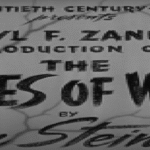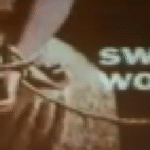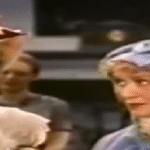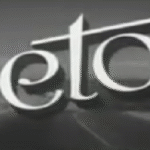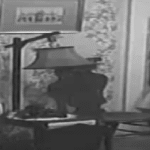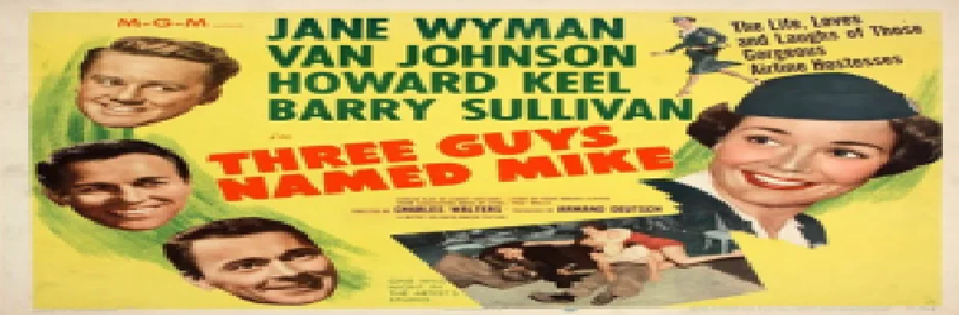Three Guys Named Mike is a light-hearted romantic comedy from 1951 that centres on a young woman trying to find her place in the world while being pursued by three very different men, all coincidentally named Mike. The film stars Jane Wyman as Marcy Lewis, a recent college graduate with dreams of independence and adventure, who embarks on a career as an airline stewardess. Along the way, she navigates the complexities of romance, career ambitions and self-discovery in post-war America, all with charm and gentle humour.
Marcy begins her journey by leaving her small hometown in Ohio, determined to start a new life in the skies. She secures a position as a stewardess with the fictional Pacific Airlines, a job that, in the era of the film, is portrayed as both glamorous and liberating. Her enthusiasm and can-do spirit make her immediately likeable, and she soon attracts the attention of three suitors, each of whom represents a different kind of future for her. The central conceit of the film — that all three men are named Mike — is played for laughs but also serves as a clever narrative device, highlighting Marcy’s internal conflict over what she truly wants in life.
The first Mike is Mike Jamison, played by Van Johnson, a confident and charismatic commercial pilot. He is the most obvious match for Marcy in terms of lifestyle and career, as they are both in the airline industry and share a love of travel and adventure. Jamison is the embodiment of the romantic ideal for a woman like Marcy in the early 1950s — handsome, professional, slightly roguish but ultimately dependable. He flirts easily and is clearly taken by Marcy’s fresh outlook, though at times his confidence borders on arrogance.
The second Mike is Mike Lawrence, portrayed by Howard Keel, a college professor and intellectual who first meets Marcy on one of her flights. He is thoughtful, composed and passionate about literature, and quickly becomes smitten with her. Lawrence represents a more stable, domestic future, full of cultural depth and intellectual companionship. Unlike Jamison, he is more reserved in his approach, choosing to woo Marcy with conversation and philosophical musings rather than grand gestures. His seriousness contrasts sharply with the other Mikes and offers Marcy a glimpse into a quieter, more grounded life.
The third contender is Mike Tracy, played by Barry Sullivan, an ambitious and somewhat intense advertising executive. Tracy is the most driven of the three, a man focused on success and image, yet still capable of genuine affection. He is attracted to Marcy not just for her looks and charm, but also for her individuality. He sees in her a partner who could match his energy and perhaps even tame his more cynical tendencies. With him, Marcy would enter a fast-paced world of business and social ambition, far removed from her Midwestern roots.
As the film unfolds, Marcy finds herself torn between the three men, each of whom brings out different aspects of her personality. Her interactions with them are often amusing, with mistaken identities, miscommunications and chance encounters adding a layer of classic screwball comedy. Yet beneath the laughs, there is a sincere exploration of a young woman figuring out who she is and what she truly wants from life. The men’s shared name serves to blur the lines between their identities, forcing Marcy to look past the surface and ask deeper questions about love and compatibility.
While the romantic entanglements are central to the film, Three Guys Named Mike also places strong emphasis on Marcy’s professional journey. The airline stewardess role, at the time, was a symbol of female independence and modernity, and the film reflects this cultural shift. Marcy is shown undergoing rigorous training, dealing with difficult passengers and navigating the demands of a high-pressure job. Her determination to succeed on her own terms is portrayed with genuine respect, and her moments of struggle are treated seriously rather than merely as comic relief. In this way, the film offers a progressive view of women in the workplace, even as it remains firmly within the conventions of mid-century romantic comedy.
Jane Wyman’s performance is key to the film’s charm. She brings warmth, wit and a quiet confidence to the role of Marcy, making her both relatable and aspirational. Wyman never plays her as foolish or overly idealistic; instead, she gives the character depth and resilience. Her chemistry with all three male leads is believable, though each relationship carries its own unique dynamic. Van Johnson’s easy charm, Howard Keel’s intellectual gravity and Barry Sullivan’s driven intensity all contrast nicely, keeping the romantic tension lively without ever turning mean-spirited or melodramatic.
The film’s tone is gentle and optimistic, with a focus on light comedy and character-driven storytelling rather than grand plot twists. Its humour relies on clever dialogue, situational irony and the occasional slapstick moment, all delivered with a knowing wink to the audience. The production values are solid for the era, with bright sets, well-tailored costumes and polished cinematography that give the film a sense of polish and professionalism. The airline scenes in particular are handled with a degree of realism, reflecting the public fascination with air travel in the post-war period.
By the end of the film, Marcy has not only resolved her romantic dilemma but has also matured in her outlook. Without giving away too much, the conclusion reinforces the idea that love should be a complement to one’s aspirations rather than a replacement for them. Marcy’s choice reflects her growth, and the film closes on a note of hope and possibility, celebrating the idea that a woman can have both a fulfilling career and a meaningful relationship, provided she stays true to herself.
Three Guys Named Mike may not be groundbreaking in its narrative structure, but it is a well-executed example of the romantic comedy genre at a time when cinema was beginning to reflect changing attitudes towards gender roles and personal agency. Its light tone, engaging performances and thoughtful message make it more than just a piece of fluff. It offers a snapshot of a moment in cultural history, capturing both the optimism and the contradictions of its era.
While it may feel quaint to modern viewers, the film remains enjoyable thanks to its sincerity and charm. It reminds us that behind every romantic entanglement lies a deeper human story — one of identity, independence and the quiet courage required to choose one’s own path. In the end, Three Guys Named Mike is not just about three men with the same name, but about a woman who refuses to be defined by anyone but herself.

